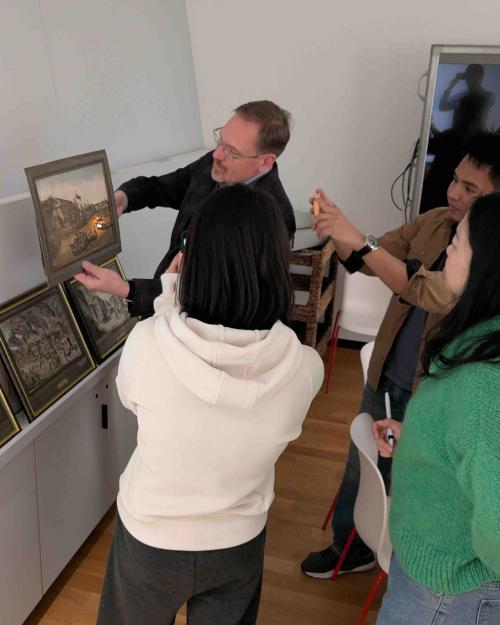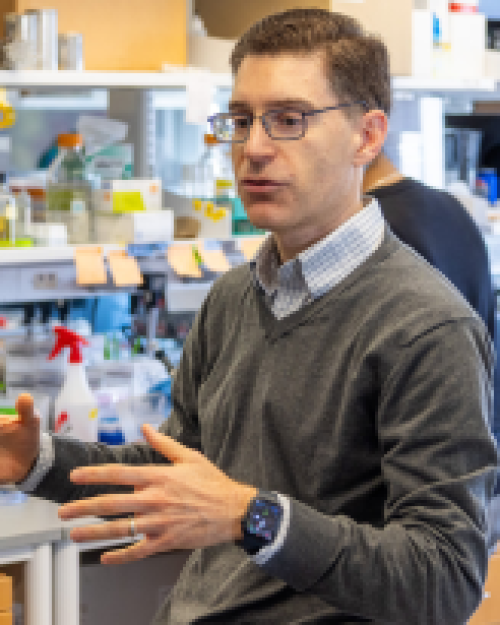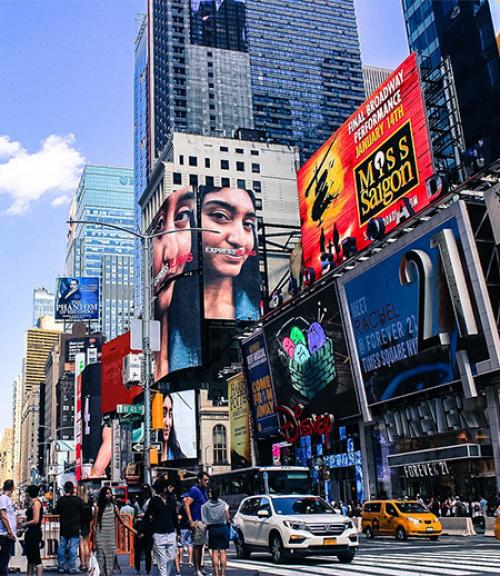This is an episode from the “What Makes Us Human?” podcast's second season, "Where Is the Human in Climate Change?" from Cornell University’s College of Arts & Sciences, showcasing the newest thinking from across the disciplines about the relationship between humans and the environment. Featuring audio essays written and recorded by Cornell faculty, the series releases a new episode each Tuesday through the spring.
Lots of creatures have very large impacts on their surroundings. Elephants turn shrub lands into grasslands in Africa. Crayfishes do the same in lakes, converting the equivalent of underwater forests into pastures of algae. Even very small creatures can have large effects. Earth’s atmosphere would not be abundant in life-giving oxygen if it weren’t for the proliferation of certain microbes early in our planet’s history.
Biologists like me refer to species with such important widespread impacts as ecosystem engineers. But when humans have introduced these species, and when we don’t like the result of their engineering, we call them invasive species.
For over 30 years, I’ve studied the effects caused by some of these creatures. After the first ten years, I came to recognize what should have been obvious from the start: humans are the greatest modern ecosystem engineers—dramatically changing all previous ecosystems and creating entirely new, urban ecosystems. In the process, we’ve not only moved lots of other ecosystem-engineering plants and animals around the planet, but we’ve also caused great changes in the earth’s atmosphere; changes that rival those wrought by microbes three billion years ago. These changes include increases in carbon dioxide, methane, and nitrous oxide—all of which act as greenhouse gases that contribute to warming and other changes in our climate.
The planetary scope and magnitude of our ecosystem engineering can be attributed to two fundamental facts of human existence: reproduction and consumption.
In the last century, the human population increased at an astounding rate. When my grandmother was born in 1888, there were only about 1.5 billion humans. When I was born in 1957, there were 2.8 billion. Now there are 7.6 billion of us, a 400% increase, and the human population is likely to reach 9.5 billion by 2050.
With modern technologies and conveniences, we consume more of everything—more food, more water, and especially more energy--making us more powerful ecosystem engineers than our grandparents.
Fossil fuels powered the Industrial Revolution and allowed for the unprecedented human welfare we still enjoy today, but the tradeoff was increasing levels of climate-changing greenhouse gases released through combustion. In fact, the concentration of carbon dioxide in the earth’s atmosphere has increased almost 40% since my grandmother was born, and other greenhouse gases have increased much more. The increases in these gases in our atmosphere are driving all sorts of other changes, including loss of sea ice, droughts, floods, wildfires, and increasingly severe storms—all unintended consequences of our ecosystem engineering.
It’s true that we’ve been staggeringly successful at creating environments conducive to human thriving. At least in the short term. But what happens over time is the rub. Humanity’s prosperity has been built on the climatic equivalent of deficit spending. There’s a climate debt—in the form of carbon in the atmosphere—that we know we have to draw down unless we are willing to leave the debt for our children and grandchildren to pay.
The good news is we humans are a clever species with a great capacity for problem-solving. We have made enormous progress on other challenges: The growth rate of the human population has been reduced by half in the last 60 years and the number of people living in extreme poverty dropped by half over the last twenty years.
And while we’ve had some success in slowing the pace of climate change, global greenhouse gas emissions continue to rise, calling for us to apply our ecosystem-engineering skills, and lessons learned, to reverse climate change for the good of all species.




